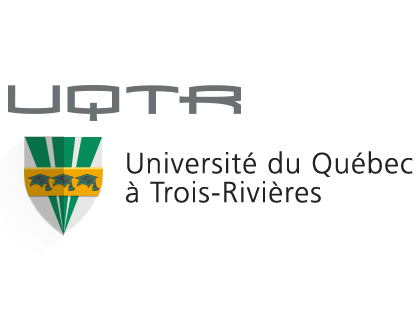Objectives of the training program
The long-term objective of the program is to train highly qualified young professionals with a comprehensive understanding of aquatic ecology. In addition, trainees will develop multidisciplinary knowledge, leadership and communication skills, and an understanding of their future role in society. ÉcoLac trainees will receive a solid interdisciplinary education in aquatic ecology and will be able to integrate quickly and efficiently into companies and organizations looking for such skills.
The short-term objectives for ÉcoLac trainees are:
1) to improve skills in ethical conduct;
2) to improve skills in written and oral communication;
3) to improve management skills;
4) to improve knowledge on labour market realities and the trainees' role in society;
5) to provide high-quality multidisciplinary training in aquatic ecology;
6) to broaden trainees' horizons by encouraging national and international opportunities;
7) to provide an interdisciplinary vision and diversified training that touches on major environmental issues.
To achieve these goals, the ÉcoLac program propose 10 specific actions (see this section).
Research axes:
The ÉcoLac research program includes three main axes:
Axis 1 – Improving knowledge on freshwater ecology:
Themes developed through this axis will contribute to developing new fundamental knowledge and also provide the scientific basis needed for the sustainable development of aquatic resources in Canada and elsewhere in the world.
Research objectives: contribute to the development of empirical models and to the understanding of how aquatic ecosystems function.
Axis 2 – Health and integrity of aquatic ecosystems facing multiple anthropogenic stresses:
Understanding the impact, magnitude, reversibility, and synergetic effects of different anthropogenic stressors is essential for managing and preserving the integrity of aquatic communities.
Research objectives: develop empirical models and understand mechanisms by which anthropogenic activities influence ecosystem functioning.
Axis 3 – Aquatic networks in relation to landscape and society:
The regional and global importance of inland waters is increasingly acknowledged. Inland waters act as catalysts for biogeochemical processes, as atmospheric carbon sinks or sources, as biodiversity hotspots, and as a key provider of services to society. Coordinated research efforts are needed to address these issues at a larger scale because of the need to integrate many disciplines.
Research objectives: understanding communities and the functioning of aquatic ecosystems at the landscape level, in terms of species' distribution, biogeochemical processes, links between aquatic and terrestrial habitats, and ecosystem services.
***To learn more about our complete research program, please refer to this document.***
ALL RIGHTS RESERVED
This website and its contents are protected by the Copyright law of Canada. Any reproduction of this website, partial or whole, is strictly prohibited without obtaining a written agreement from the NSERC-CREATE ÉcoLac program coordinator, marie-andree.fallu@uqtr.ca.


